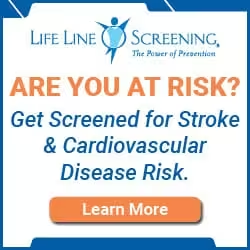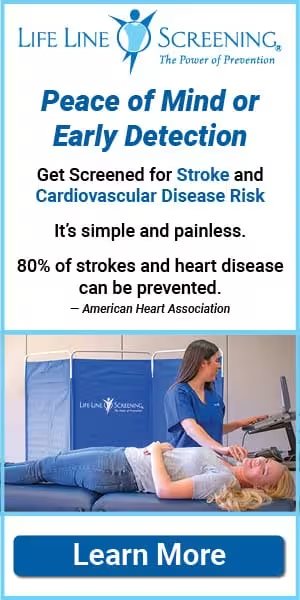Cardiovascular and Stroke Risk Screening: A Simple Test That Helps You Stay Alert
Most people don’t realize how early heart and stroke risks can develop quietly.
We often feel fine — until health changes remind us why preventive care matters.
That’s how cardiovascular disease and stroke often show up — with no warning. No chest pain. No signs to prepare for what’s coming.
Cardiovascular conditions often develop without obvious symptoms, which is why preventive screening helps you stay informed and proactive about your health.
But here’s the good news:
Many cardiovascular and stroke risks can be reduced through early awareness and lifestyle changes. A cardiovascular and stroke risk screening offers a quick, non-invasive look at your artery and heart health.
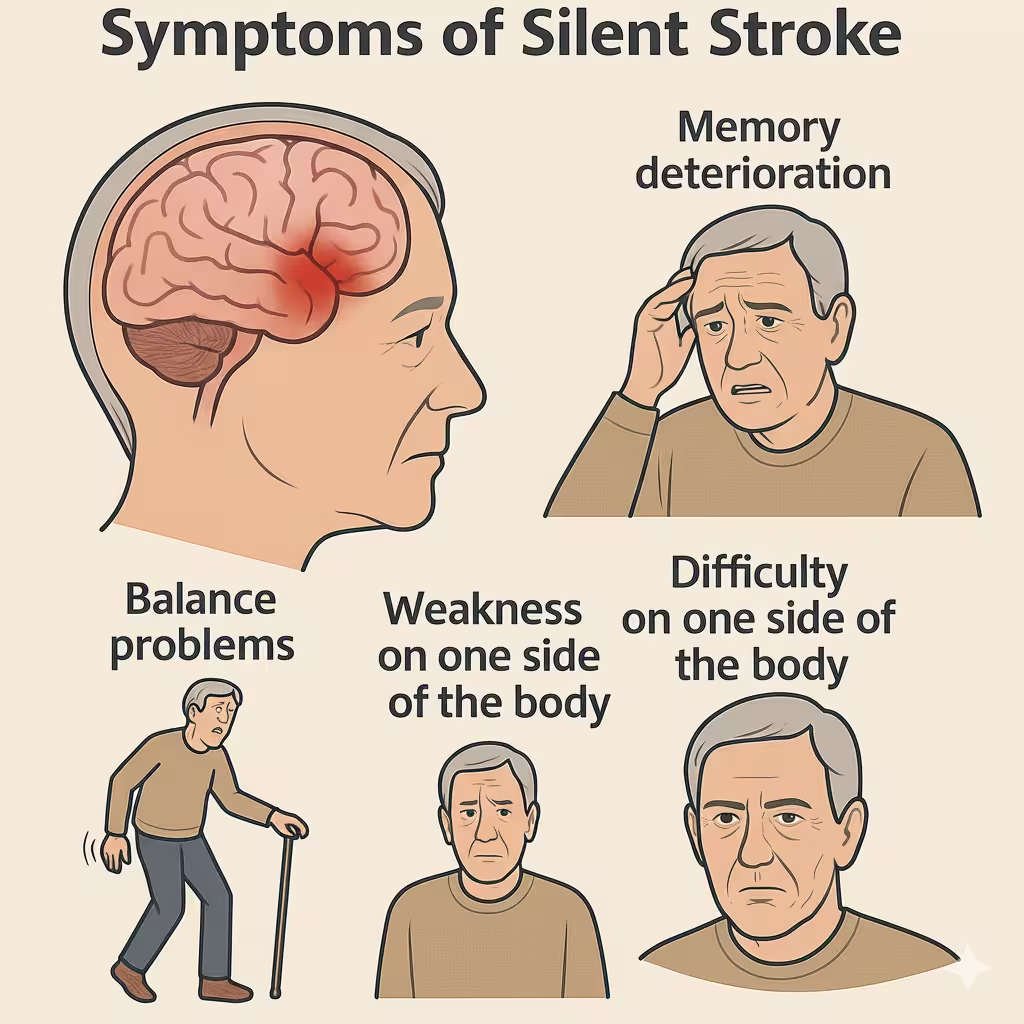
Symptoms of Silent Stroke: Many people don’t realize silent strokes can cause mild memory loss, balance problems, or sudden confusion. These signs often go unnoticed without screening.
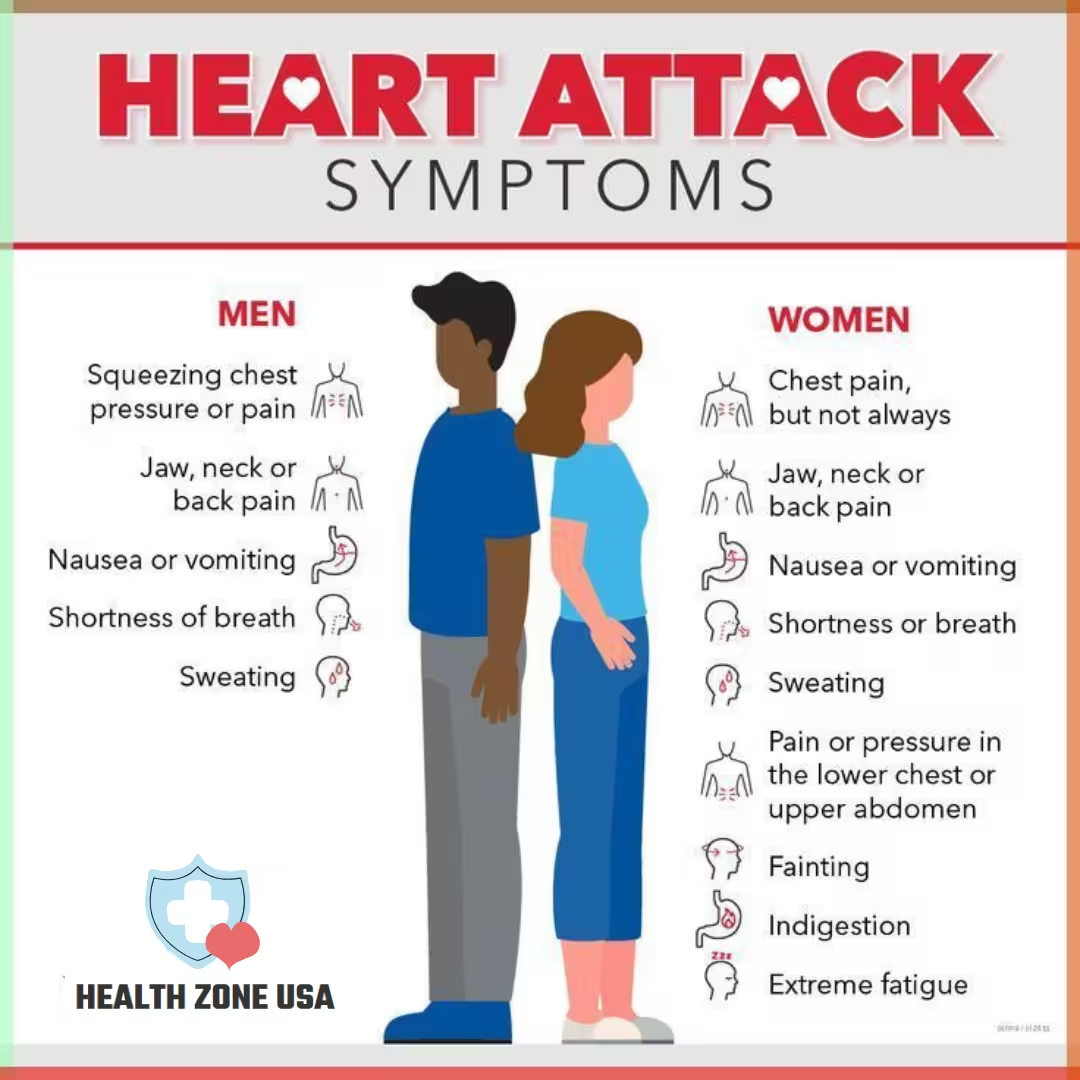
Heart Attack Symptoms: Chest discomfort, fatigue, or shortness of breath are early warnings — but not everyone feels them the same way. That’s why screening is vital for peace of mind.
Why Prevention Matters More Than We Realize
Here’s something most people don’t think about: your arteries don’t have pain sensors.
They don’t tell you when plaque is building up or when blood flow is getting weaker.
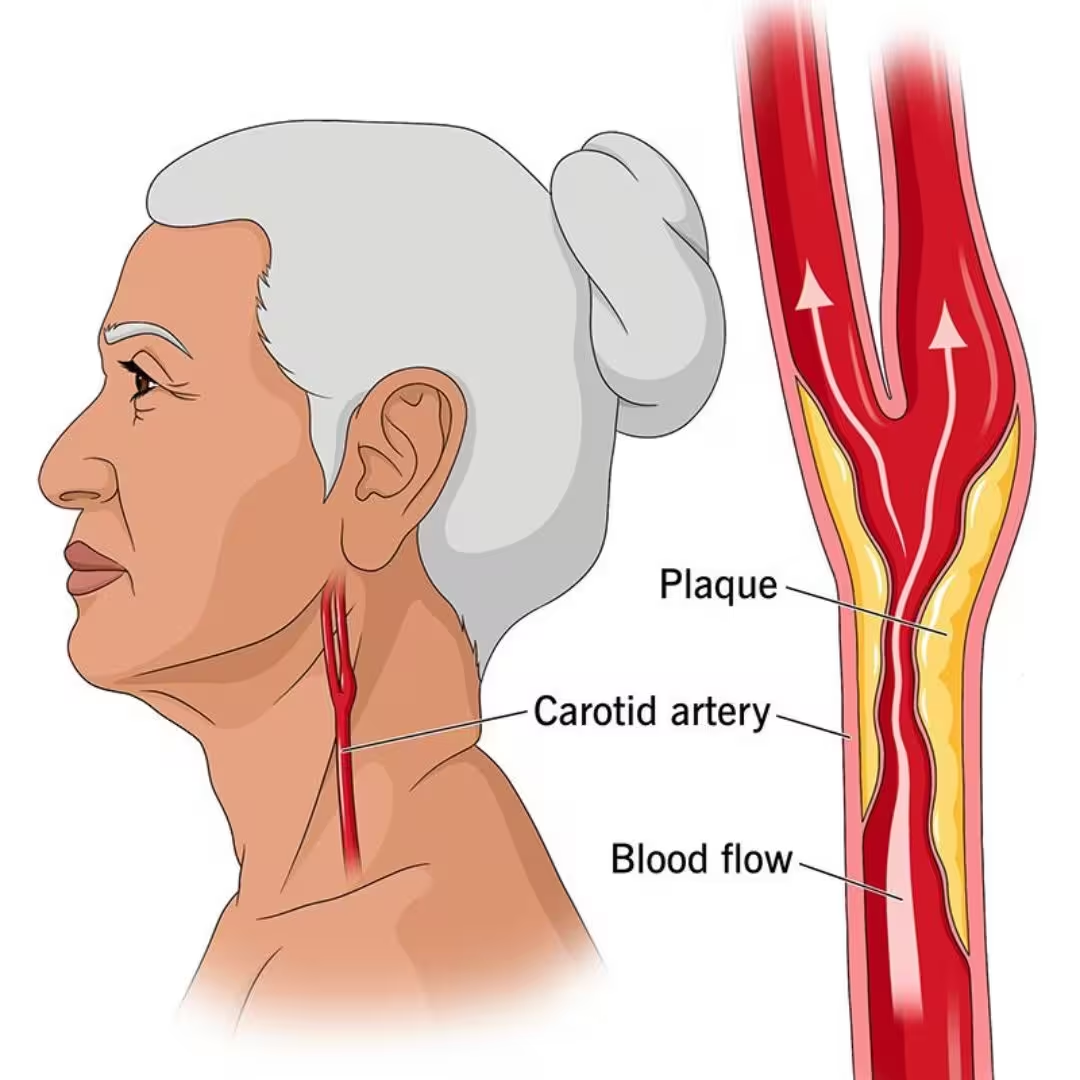
You can feel healthy, exercise, and still have risks hiding inside.
By the time you feel something, it’s often already serious.
That’s why screenings like these exist. They don’t treat illness — they stop it before it starts.
It’s like checking the oil in your car before a long drive — not because it’s broken, but because you want it to keep running smoothly.
Who Should Consider Getting Screened?
This is where most people hesitate.
“I feel fine — do I really need this?”
The truth is, these screenings aren’t just for people with symptoms. They’re for people who don’t want to have any.
You should seriously consider getting screened if you:
Are 40 or older
Have high blood pressure or high cholesterol
Have diabetes
Smoke or used to smoke
Have a family history of heart disease or stroke
Live a sedentary or high-stress lifestyle
According to a 2009 study in Neurology Journal, 4 out of 5 stroke victims had no warning signs before their first stroke.
That’s what makes preventive action so powerful — you catch what others miss.
What This Screening Actually Does
A cardiovascular and stroke risk screening isn’t like a hospital test. There are no needles, no gowns, no overnight stays.
You show up, lie down, and a technician uses ultrasound equipment to look at your arteries and blood flow.
That’s it.
No pain, no pressure, no prep work.
Here’s what they check:
Carotid artery ultrasound – finds plaque that could lead to a stroke
Peripheral arterial disease (PAD) test – checks blood circulation in the legs
Abdominal aortic aneurysm (AAA) scan – looks for bulges in the main artery
Atrial fibrillation (AFib) screening – detects irregular heart rhythms
Each of these tests targets one of the most common (and preventable) causes of stroke or heart problems.
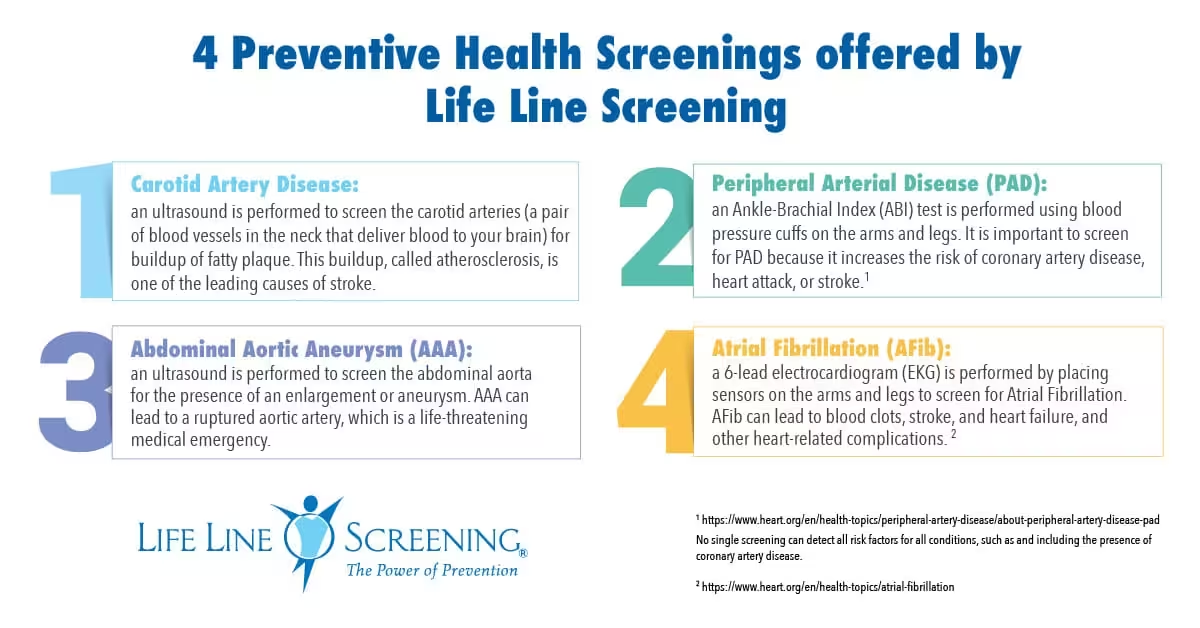
Why So Many People Trust Life Line Screening in USA
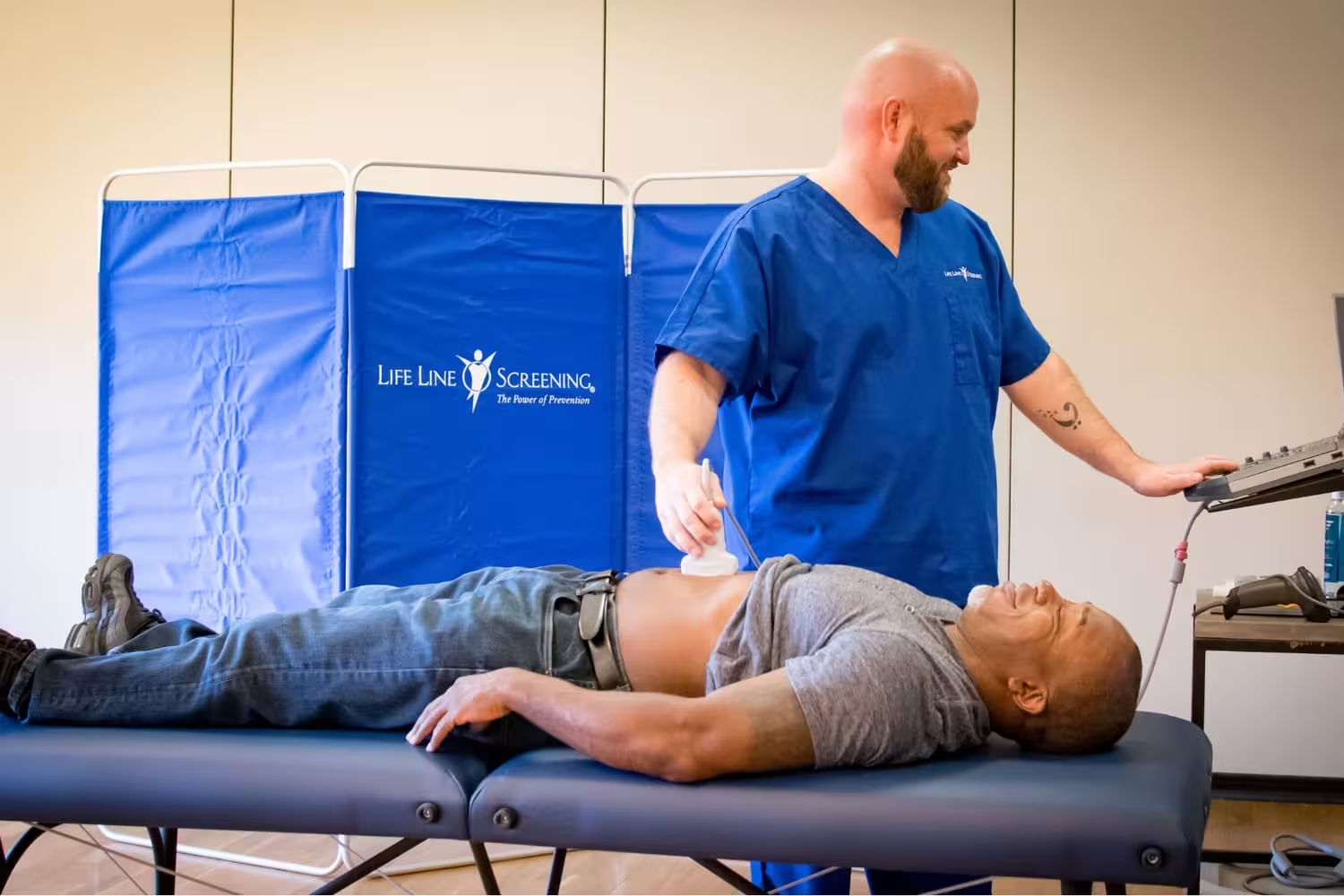
Since 1993, Life Line Screening has helped more than 11 million Americans uncover hidden risks — often sometimes these screenings detect concerns early, which people can then discuss with their doctors.
"Life Line Screening provides preventive health services. These screenings are not intended to diagnose or replace professional medical evaluation."
Their approach is simple: make preventive health accessible and affordable.
They offer 4 essential screenings in one appointment for about $159.
What people love most is the convenience:
It’s done at local community centers and churches, not hospitals.
You can choose from over 14,000 locations across the U.S.
The tests are non-invasive and private.
Results are easy to understand and share with your doctor.
It’s one of those rare health decisions that takes very little effort — but could make a huge difference.
Real Testimonials
Sam and Carol Raines
“My surgeon was amazed and after my screening, I learned more about my cardiovascular health and felt reassured about taking preventive steps.”* —Sam Raines
Larry and Claudia’s Story
“Deep sigh of relief. It was so very close to Christmas. All I could think of was what a wonderful Christmas present I was just given.”
Carmela’s Story
“Do it for you. Do it for your family.”
Charlotte Story
"It helps me stay proactive instead of reactive about my health, and the quality of care is top notch,”
What to Expect at Your Appointment
You’ll check in, answer a few quick questions about your health, and then the technician begins.
A small handheld device glides over your neck, stomach, and legs. You might hear a soft whooshing sound — that’s your blood flow being measured in real time.
In less than an hour, you’re done.
Your results are either reassuring — or life-changing in the best way.
Either way, you walk out knowing where you stand.
"Results are for your awareness and should be discussed with your physician."
The Emotional Side of Knowing
There’s something freeing about not guessing.
When you get screened, you replace uncertainty with information — and that brings peace of mind.
Even if the results show a potential issue, it’s still a win — because you found it early enough to do something about it.
Most people say the same thing after their screening:
“I wish I’d done this sooner.”
How to Take the Next Step
Booking a screening is easy.
You can find a nearby location just by entering your ZIP code, pick a time that fits your schedule, and reserve your appointment.
That’s it — one small decision that might protect decades of healthy living.
"Screenings are for informational purposes and not a medical diagnosis."
Frequently Asked Questions
It includes four key tests — carotid ultrasound, PAD check, abdominal aneurysm scan, and AFib screening — all non-invasive and painless.
Yes. Life Line Screening has been operating for more than 30 years and has screened millions of people nationwide. Their methods are backed by medical professionals and trusted across the U.S.
They’re reliable for spotting early warning signs like blocked arteries, aneurysms, or irregular heart rhythms. It’s not a diagnosis — it’s a wake-up call to take action early.
“Screening results should always be reviewed by your doctor for medical interpretation.”
The complete affordable package costs around $159, which includes all four tests.
Most insurance plans don’t cover preventive screenings, but the cost is still very reasonable — often less than a single doctor visit.
If your results are normal, once every 1–2 years is enough. But if you have health risks, talk to your doctor about doing it more often.
Final Thoughts: Don’t Wait for a Warning Sign
It’s easy to put things off — especially when you feel fine.
But prevention isn’t about fear. It’s about freedom.
Freedom from uncertainty.
Freedom from what-ifs.
Freedom to live life with confidence, knowing you’ve done your part.
A Cardiovascular and Stroke Risk Screening takes less than an hour, costs less than a dinner out, and could change the course of your health.
Don’t wait to take charge of your health. A simple preventive screening helps you stay informed and confident about your well-being.
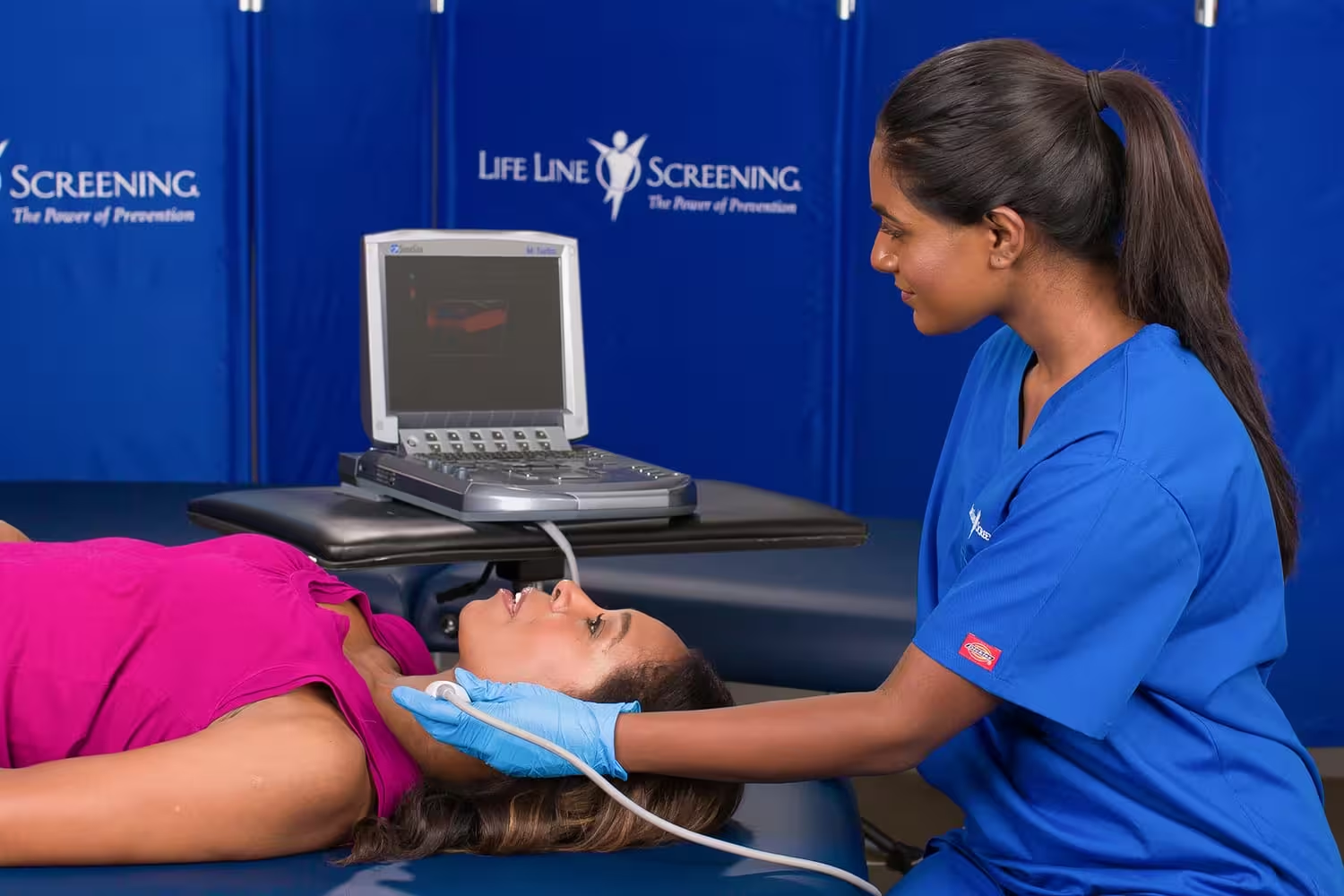
Listen Podcast of articles summery.
Reliable Health Insights, Expert Medical Guidance, Updates, Tools, and Valuable Resources.
Stay informed with valuable health and wellness tips delivered straight to your inbox.
Created with ©systeme.io
